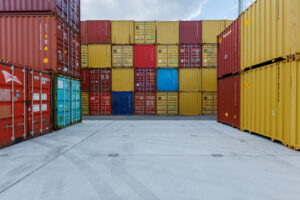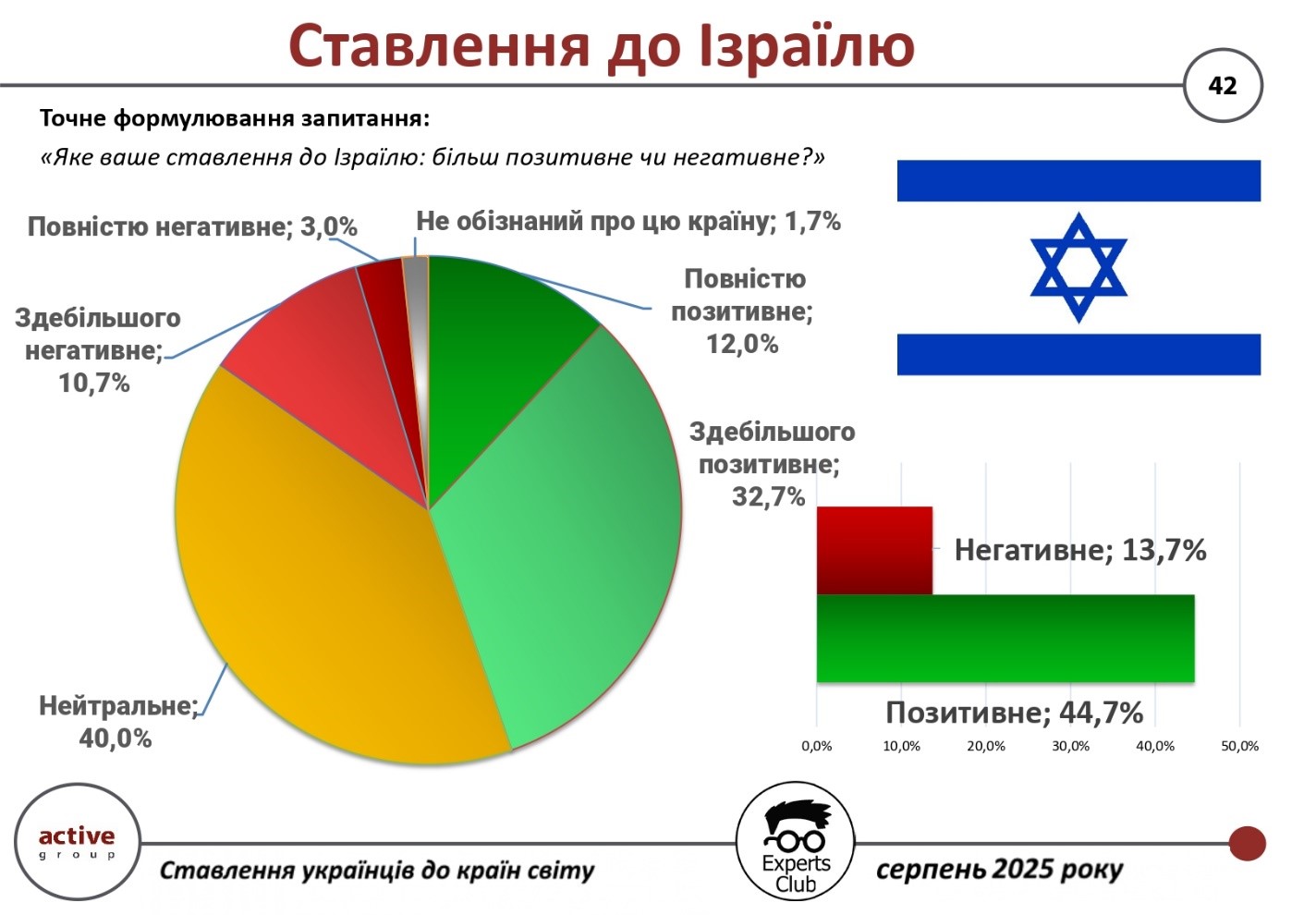
Most Ukrainians have a neutral attitude toward Vietnam, according to a survey conducted by Active Group in collaboration with Experts Club in August 2025.
According to the study, 71.3% of respondents expressed a neutral attitude toward this country. Vietnam is viewed positively by 15.7% of Ukrainians (11.3% — mostly positively, 4.3% — completely positively). At the same time, negative assessments account for 9.0% (8.0% — mostly negatively, 1.0% — completely negatively). Another 4.3% of respondents said they did not have enough information about the country.
“These results can be explained by the relatively low level of contact between Ukrainian society and Vietnam, as well as the limited number of joint cultural or political initiatives. At the same time, neutrality can become the basis for the future development of partnership relations,” commented Alexander Pozniy, head of Active Group.
In turn, Maxim Urakin, co-founder of Experts Club, drew attention to the economic aspect:
“In the first half of 2025, the total trade volume between Ukraine and Vietnam amounted to more than $560 million. At the same time, Ukraine’s exports amounted to only $104 million, while imports exceeded $455 million, resulting in a significant negative balance of $351 million. These figures clearly show that the trade balance is currently very unfavorable for Ukraine, and the range of products between the countries needs to be improved,” the expert emphasized.
The study is part of a nationwide monitoring of citizens’ attitudes toward Ukraine’s key international partners.
The full video can be viewed at:
You can subscribe to the Experts Club YouTube channel here:

The Austrian government has adopted a number of tough measures to regulate the rental housing market. Legislative innovations concern limiting rent growth and extending the minimum length of contracts, which caused a wave of discussion among tenants, property owners and analysts.
If inflation exceeds 3% per annum, landlords will not be able to fully pass on price increases to tenants. Their rent increase can only be half of the excess over the threshold. Example: if inflation is 4.2%, rent can only be increased by 3.6%.
The minimum lease term is increased from three to five years, making it more difficult to replace tenants to eliminate losses through new contracts.
An exception is made for family homes: one- and two-family properties are not affected by the new rules.
For buildings built before 1945, the rules are even tougher:
– In 2025, rents for such houses/apartments cannot be raised at all;
– in 2026, a maximum of 1%;
– in 2027 by a maximum of 2%.
In Vienna, for example, for such buildings there are already legislated maximum rents of around €6.67/m², with a number of surcharges and discounts, but often the final rent barely exceeds €10/m². Economists warn: such measures may curb rental growth, but at the same time reduce the incentive for owners to rent, potentially leading to a shortage of supply (compare with the experience of Berlin).
According to Statistics Austria and other reliable sources, as of January 1, 2025, there are about 1,855,419 people with foreign citizenship living in Austria.
The largest groups of foreign nationals are: Germany (~239,500), Romania (~155,700), Turkey (~124,000), Serbia (~123,000), Ukraine (~100,000). In 2024, the share of people with a migration background is 27.8 % of the Austrian population. This includes those born abroad and their descendants.

The transport and logistics group Lemtrans (Kyiv), together with Rail Trans Investment (Odesa), has completed the first phase of construction of the Fastiv container terminal, investing approximately $7 million in the first phase.
According to the company’s press release on Friday, two new railway tracks and a container yard capable of storing up to 1,350 TEU have been fully equipped as part of the project.
The company emphasizes that, in line with its growth strategy, the terminal’s throughput capacity is expected to reach 55,000 TEU.
“The completed railway infrastructure allows the terminal to accept full-length trains, which contributes to efficient loading and unloading operations,” Lemtrans emphasized.
It is noted that the terminal offers services such as a container depot and transportation organization, stowage of various categories of cargo (grain, oil, equipment, cars), as well as a customs zone and brokerage services.
In addition, its location makes it possible to organize regular container trains to Odessa and European ports, including Gdansk, Hamburg, Trieste, and others.
According to information from YouControl, Fastiv Container Terminal LLC was registered in 2020 and is owned on a parity basis by Lemtrans, Ukraine’s largest private freight operator, part of Rinat Akhmetov’s SCM Group, and Rail Trans Investment, owned by Oleksandr Prymak.

Most Ukrainians have a positive attitude toward Moldova, as evidenced by the results of a sociological study conducted by Active Group in collaboration with Experts Club in August 2025.
According to the data, 51.3% of respondents have a positive attitude towards the neighbouring country (34.0% — mostly positive, 17.3% — completely positive). Only 4.7% of respondents have a negative attitude (4.3% — mostly negative, 0.3% — completely negative). At the same time, 42.0% of citizens remain neutral, and another 2.3% said they did not have enough information about Moldova.
“Despite difficult historical relations and various political challenges, Ukrainians’ attitude towards Moldova is rather warm and friendly. This is explained by both geographical proximity and similar cultural traditions,” said Active Group CEO Oleksandr Pozniy.

In turn, co-founder of Experts Club Maksim Urakin emphasized the importance of economic cooperation between the two countries:
“In 2025, Ukraine maintains a significant positive trade balance with Moldova — over $448 million. Ukrainian exports amounted to about $519 million, while imports — only $70.9 million. The total volume of bilateral trade reached $590 million, and this dynamic indicates Moldova’s stable interest in Ukrainian goods,” he stressed.
The study is part of a large-scale project analyzing Ukraine’s international sympathies and economic relations.
The full video can be viewed at: https://www.youtube.com/watch?v=YgC9TPnMoMI&t
You can subscribe to the Experts Club YouTube channel here: https://www.youtube.com/@ExpertsClub
ACTIVE GROUP, EXPERTS CLUB, MOLDOVA, Pozniy, RELATIONS, SOCIOLOGY, TRADE, UKRAINE, URAKIN

According to the results of a survey conducted by Active Group and Experts Club in August 2025, Ukrainians tend to have a positive attitude toward Israel.
Thus, 44.7% of respondents expressed sympathy for this country (32.7% — mostly positive, 12% — completely positive). Negative assessments accounted for 13.7%, another 40% remained neutral, and 1.7% admitted that they did not know enough about Israel.
“Despite a certain percentage of criticism, Ukrainians’ attitude toward Israel remains generally positive. This is explained by both historical ties and cooperation in the fields of medicine, science, and military technology,” commented Active Group CEO Oleksandr Pozniy.

In turn, Maksim Urakin, co-founder of Experts Club, drew attention to the trade and economic component:
“At the end of 2025, bilateral trade between Ukraine and Israel amounted to more than $353 million. Ukrainian exports amounted to $132.4 million, while imports of Israeli goods exceeded $221 million. This led to a negative balance of about $88.6 million. Such an imbalance indicates the need to expand Ukrainian exports and search for new niches in the Israeli market,” he stressed.
Thus, Ukrainians’ attitude toward Israel is moderately positive, but economic indicators show challenges that should be taken into account in bilateral relations.
The full video can be viewed at: https://www.youtube.com/watch?v=YgC9TPnMoMI&t
You can subscribe to the Experts Club YouTube channel here: https://www.youtube.com/@ExpertsClub
ACTIVE GROUP, EXPERTS CLUB, ISRAEL, Pozniy, SOCIOLOGY, TRADE, UKRAINE, URAKIN

In January-June 2025, the logistics company TAS-Logistic LLC reduced its revenue by 4.7 times compared to the same period last year, to UAH 91.14 million.
According to a report in the disclosure system of the National Securities and Stock Market Commission, the company’s net loss amounted to UAH 89.04 million, compared to a net profit of UAH 89.50 million in the first half of 2024.
It is noted that the gross loss for January-June this year amounted to UAH 26.17 million, while for the same period in 2024, a gross profit of UAH 310.68 million was recorded.
The operating loss for the first half of 2025 amounted to UAH 32.00 million, compared to UAH 224.44 million in operating profit for the first half of 2024.
During the reporting period, the company managed to reduce long-term bank loans from UAH 264.4 million to UAH 220.8 million, other long-term liabilities from UAH 471.7 million to UAH 415.5 million, while current accounts payable on long-term liabilities increased from UAH 181.8 million to UAH 229.8 million, and other current liabilities from UAH 225.4 million to UAH 313.7 million.
TAS-Logistic is part of the TAS group, owned by Serhiy Tihipko. The company provides a full range of transport and logistics services for the transportation of grain and oilseeds, as well as sea transportation of import and export cargo through the main seaports of Ukraine and Europe with full logistics support.
The company’s fleet includes more than 1,700 grain cars and 160 semi-cars, 161 flatcars, and 52 tank cars.